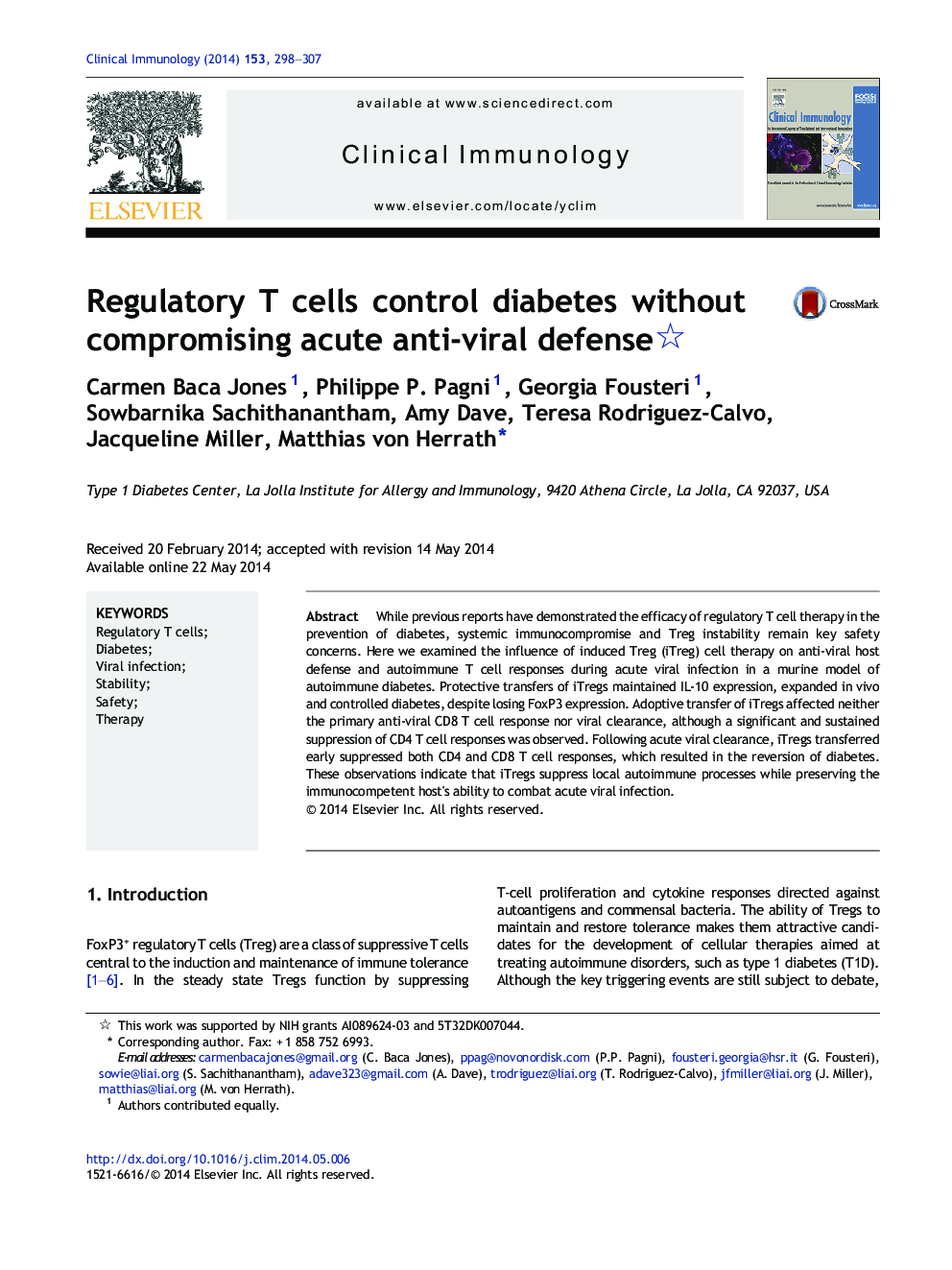| Article ID | Journal | Published Year | Pages | File Type |
|---|---|---|---|---|
| 3256847 | Clinical Immunology | 2014 | 10 Pages |
•iTregs can protect from diabetes without affecting viral clearance.•iTregs modulate T cell responses to prevent diabetes but not affect viral clearance.•iTreg transfer diminishes CD8T cell responses after viral clearance.•iTregs need to be present before/during onset of autoimmunity.•Viral infection reduces FoxP3 transiently but IL-10 is maintained.
While previous reports have demonstrated the efficacy of regulatory T cell therapy in the prevention of diabetes, systemic immunocompromise and Treg instability remain key safety concerns. Here we examined the influence of induced Treg (iTreg) cell therapy on anti-viral host defense and autoimmune T cell responses during acute viral infection in a murine model of autoimmune diabetes. Protective transfers of iTregs maintained IL-10 expression, expanded in vivo and controlled diabetes, despite losing FoxP3 expression. Adoptive transfer of iTregs affected neither the primary anti-viral CD8 T cell response nor viral clearance, although a significant and sustained suppression of CD4 T cell responses was observed. Following acute viral clearance, iTregs transferred early suppressed both CD4 and CD8 T cell responses, which resulted in the reversion of diabetes. These observations indicate that iTregs suppress local autoimmune processes while preserving the immunocompetent host's ability to combat acute viral infection.
